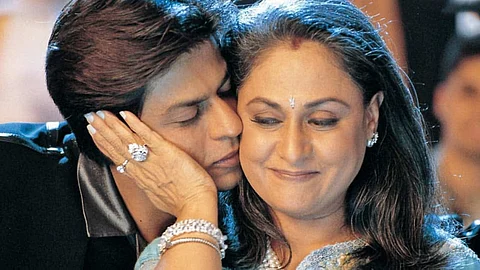The Myth Of The ‘Simple Mother’: How Patriarchy Romanticises Indian Women’s Unpaid Labour
In recent years, one of the most popular and enduring stereotypes about Indian women, especially mothers, to emerge out of the manosphere is the 'simple mother' — who quietly manages the household, cooks for the family, makes endless sacrifices, and asks for nothing in return. She 'doesn't know how to use smartphones or computers', dresses 'simply, without makeup or jewellery', and follows 'traditional' family values'. Every few months, more so on Mother's Day and Women's Day, posts about the 'simple mother' inevitably make their way into online discourse about feminism and extol the virtues of traditional gender roles associated with motherhood.
This idealised image of motherhood may seem harmless or even admirable on the surface, but it is rooted in deeply patriarchal ideas that reduce women to tools of domestic functionality rather than full, complex individuals. By romanticising the unpaid labour and supposed selflessness of mothers, Indian society not only normalises gender inequality but also traps women — particularly older women — in cycles of invisibility and dependence.
Bollywood has played a central role in constructing this ideal. From 'Deewaar' (1975) to 'Kabhi Khushi Kabhie Gham' (2001), the figure of the suffering, self-effacing mother looms large. Nirupa Roy, often cast as the archetypal mother in 1970s films, weeps silently in dimly lit kitchens, offering moral guidance while enduring poverty, illness, and abandonment. Her devotion to family is often the entirety of her character arc.
In Kabhi Khushi Kabhie Gham, Jaya Bachchan's character waits for her son at the door every evening, intuitively sensing his arrival like a goddess instead of a person with her own desires or life outside motherhood. More recently, even films like 'English Vinglish' (2012), which aim to empower the mother figure, begin with her complete invisibility — taken for granted by her family, mocked for her lack of English fluency, and confined to the kitchen. While the narrative eventually charts her journey to self-worth, it also reflects how the 'simple mother' ideal is still the default from which she must painfully emerge. This glorification of sacrifice is not about love; it is about patriarchal control over women's lives. By idealising women who do not seek autonomy, who do not ask for recognition or rest, society reinforces the notion that a woman's highest calling is to serve her family.
Crucially, this romanticisation masks the harsh reality of women's unpaid domestic labour in India. Indian women perform an average of four times more unpaid housework than men, yet this work remains unacknowledged in both social and economic terms. When women are praised for doing this work "willingly" or for being "naturally nurturing", it implies that domestic labour is not real work, but a part of their identity. This framing makes it harder for women to negotiate shared responsibilities or to pursue opportunities outside the home.
The 'simple mother' stereotype is particularly damaging to older Indian women as it limits their access to digital literacy, financial independence, and social mobility. The truth is, a woman who never learns to use a smartphone or manage a bank account online is not 'simple' or 'innocent'. She has been systematically denied those basic skills and the glorification of her ignorance is not benign; it is oppressive. It keeps her dependent on her children or husband, and it disempowers her from pursuing her dreams, her desires, and her full potential.
As we celebrate Mother's Day, it's important that we see beyond the rose-tinted surface of the 'simple mother' stereotype and ask: why is it that mothers are expected to be 'simple' while fathers, even if emotionally unavailable, are rarely romanticised for their sacrifices or held accountable for the selfish lack thereof?
If you enjoyed reading this, here's more from Homegrown:
Getting To Know My Mother As A Woman, Beyond Motherhood
It Runs In The Family: How My Mother Became A Mirror For My Dating Life
Ima Keithel: Manipur’s Mothers Are Leading A 500-Year Revolution Through Commerce & Unity


